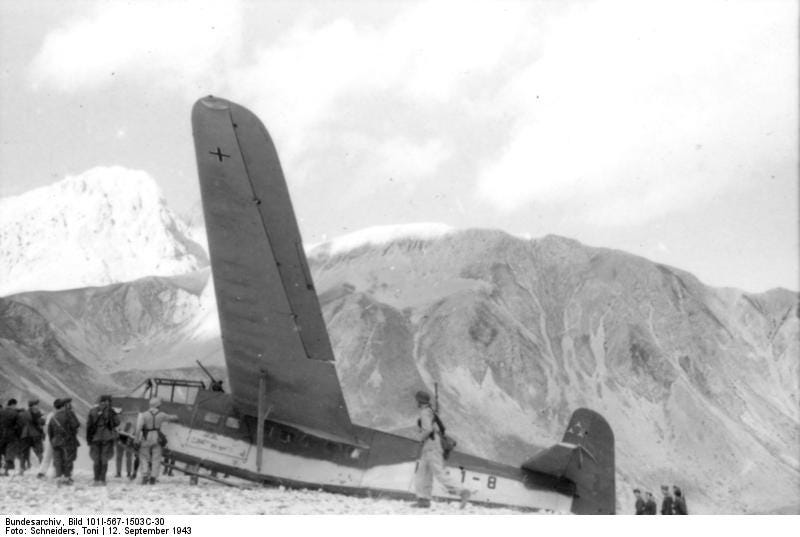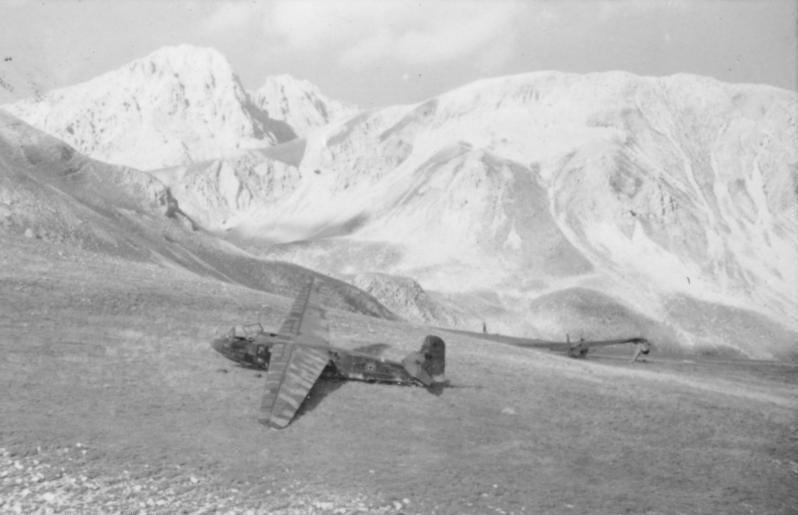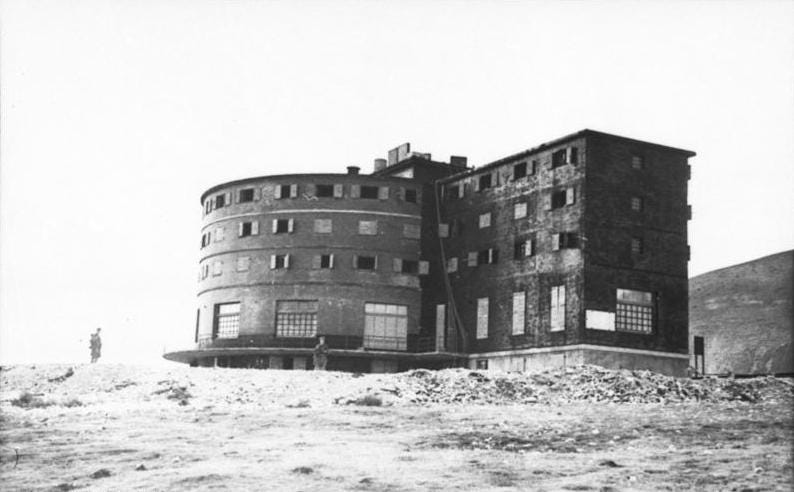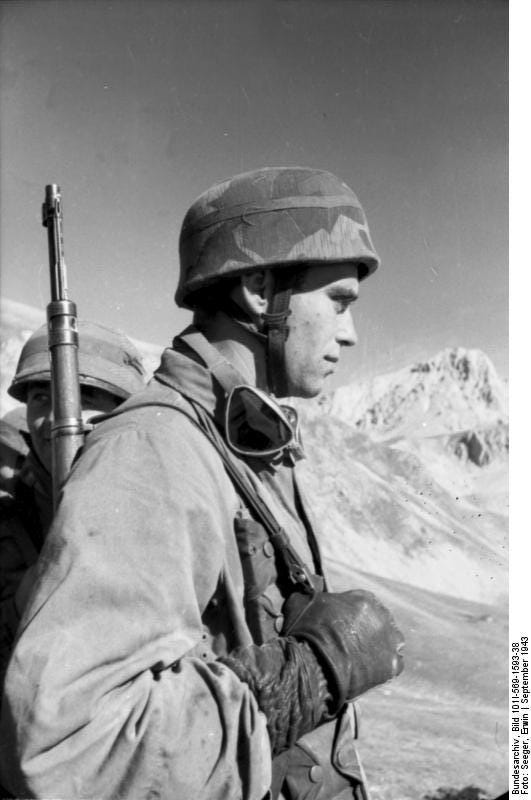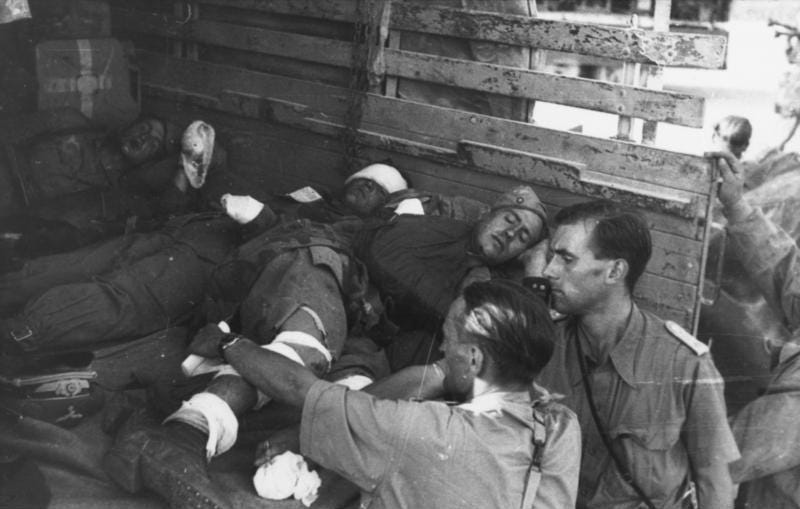Fallschirmjägers rescue Mussolini
12th September 1943: In a daring raid that gets worldwide publicity German glider borne troops rescue Mussolini from house arrest in a mountain resort
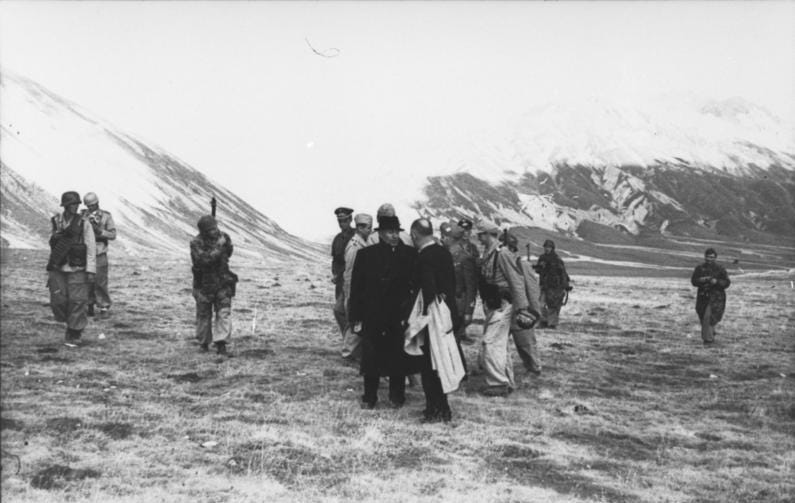
Hitler had been incensed by the capitulation of the 'traitorous' Italians - and German forces swiftly took control of the country.
However, the prospect of the Allies moving easily up the 'soft underbelly of Europe', as Churchill had once imagined, proved to be quite false. Mountainous Italy, with nearly all its rivers running across the path of the Allied advance northwards, was soon revealed to be almost perfect terrain for the slow defensive war that the Germans now chose to fight.
The political situation was more complicated, with the new Italian government eventually declaring war against Germany. They had detained the former dictator Mussolini - he was being held in the remote village of Gran Sasso, high in the Apennines, the mountain range in the centre of Italy.
We shall soon see whether he is still capable of large-scale political activity. The Fuhrer thinks so.
Hitler wanted a pro-German regime. The first step was restoring Mussolini to power. So Hitler was very keen to rescue Mussolini, who he regarded as a personal friend, from imprisonment. The daring raid of the 12th September attracted worldwide attention.
Hitler's Propaganda Chief, Josef Goebbels1 welcomed the publicity. He was rather less sure that restoring Mussolini to power, even in a puppet regime, was a good idea:
Liberation in the Apennines was undertaken with gliders. One of these landed fifty feet in front of the hostelry in which the Duce was staying. Within a few minutes he was free. He was of course deeply touched at being rescued from captivity by German soldiers.
Our soldiers proceeded pretty brutally and thereby kept the Italian Carabinieri guards in check. A few hours later the Duce was in Vienna. Just before calling me the Fuhrer had had a telephone conversation with him.
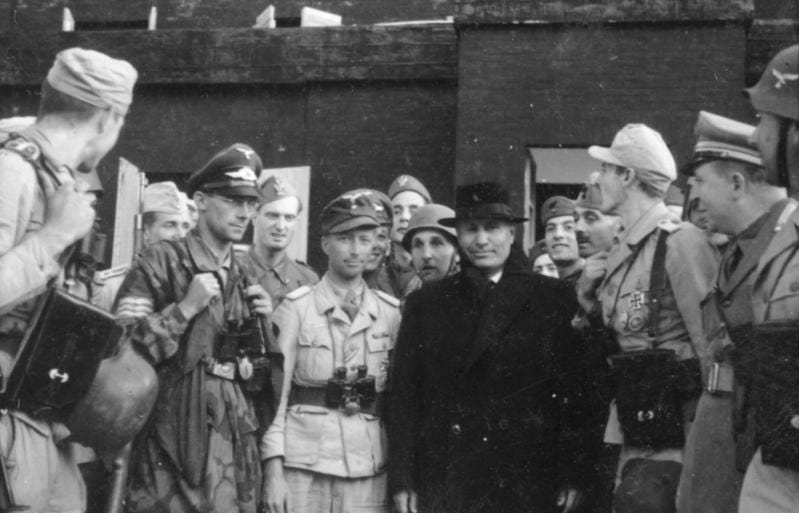
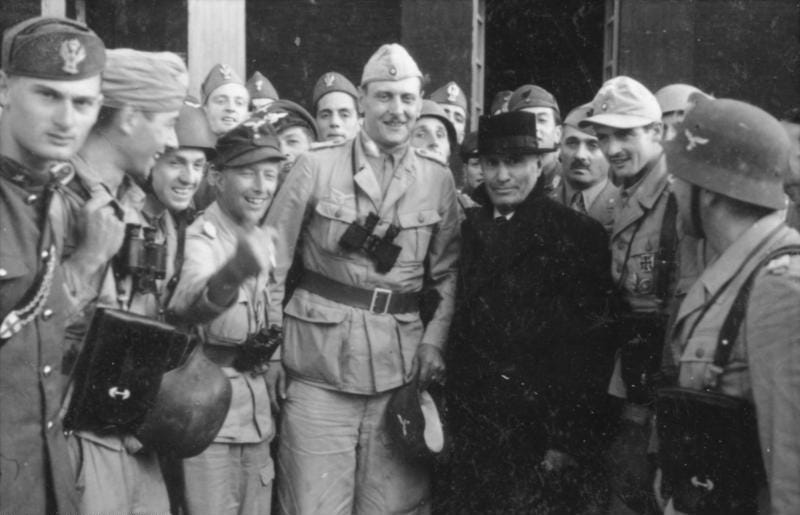
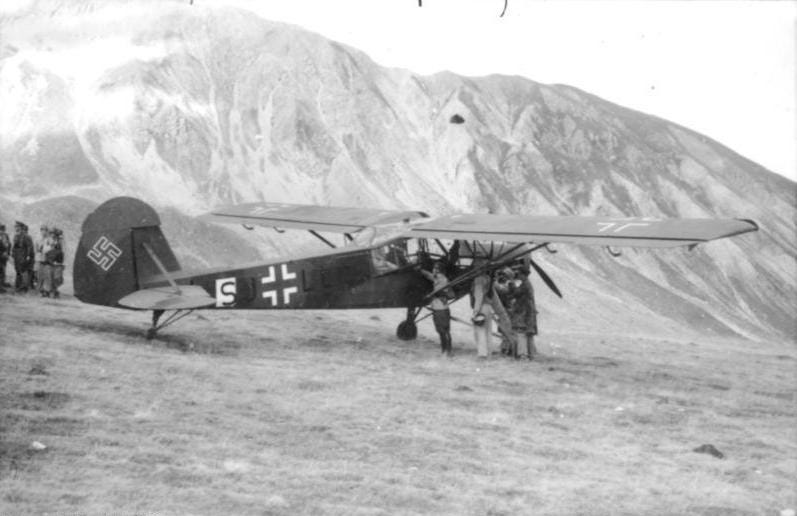
He told me that the Duce was deeply shaken by developments. He informed the Fuhrer that he was tired and sick and would first of all like to have a long sleep. On Monday he wanted to visit his family in Munich. We shall soon see whether he is still capable of large-scale political activity. The Fuhrer thinks so. At any rate he will meet Mussolini at G.H.Q. on Tuesday.
However much I may be touched on the human side by the Duce’s liberation, I am nevertheless sceptical about its political advantages. With the Duce out of the way, we had a chance to wipe the slate clean in Italy.
Without any restraint, and basing our action on the grandiose treachery of the Badoglio regime, we could force a solution of all our problems regarding Italy.
